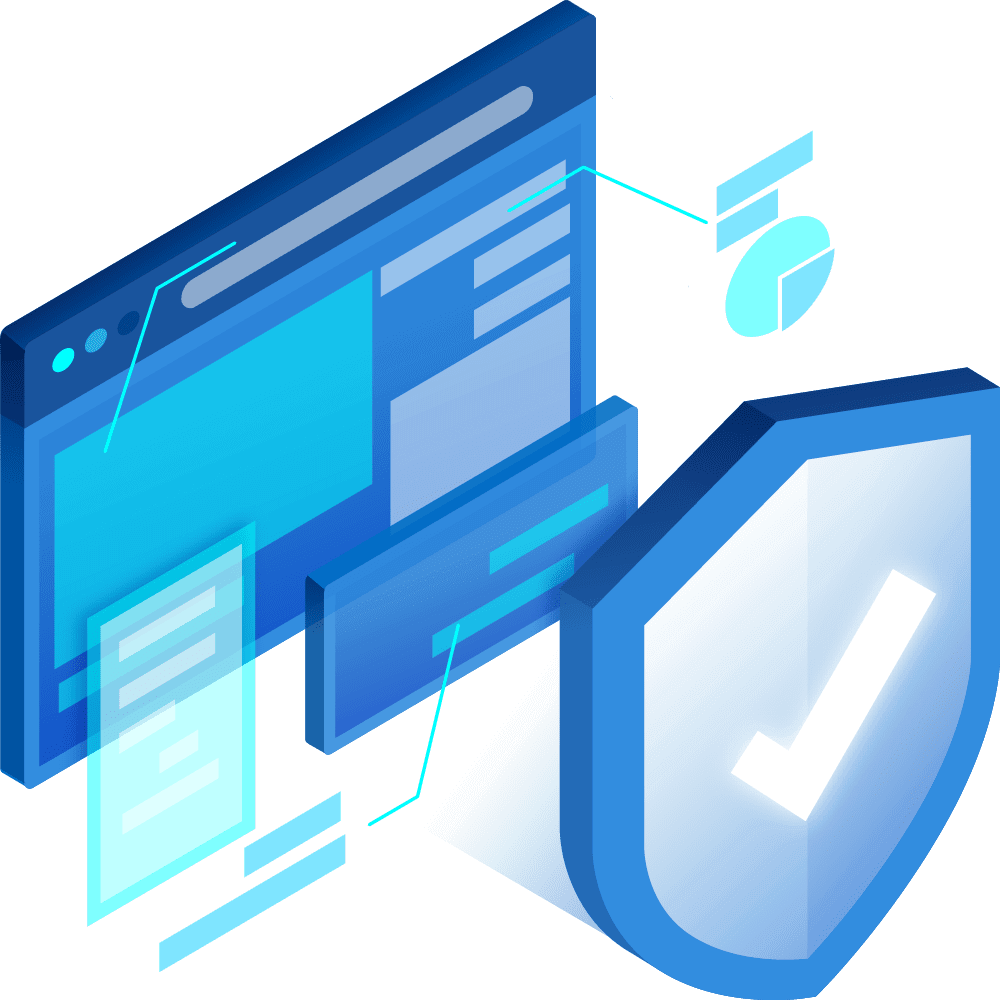You might be wondering…
What are Portals?
In its simplest definition, a web portal is a process-driven website that serves as the single point of access for information curated specifically for stakeholders.
Audiences now demand digital self-service and convenience, and portals are the engines that meet this need.


How Are Web Portals used?
Web portals are utilised by organisations as communication and information hubs. They centralise, streamline, and simplify information sharing, boosting stakeholder engagement and minimising administrative burden.
The portals we deploy are used as self-service platforms for both internal and external user groups such as customers, partners, and employees.
The secure access to business data, availability of self-service capabilities, and the ability to enable two-way communication makes them an efficient tool for improving operational processes and increasing engagement.
Additionally, portals aid in regulatory compliance and effective data management by providing secure interactions and efficient data distribution that facilitates informed decision-making.

What are the frequent types of portals?
Customer Portals
Web portals play a vital role in improving customer experiences. In the case of eCommerce, portals enable customers to access their order history, manage payment methods, initiate returns, and receive tailored shopping experiences.
Other usage scenarios include providing a secure platform for accessing account information, updating personal details, accessing knowledge and learning resources, and interacting with support teams.
Implementing customer portals simplifies access to information and services, streamlining processes and fostering efficient communication to build lasting relationships.
Community Portals
Community portals are versatile, innovative resources to boost engagement among member groups.
These portals offer streamlined access to resources to develop an environment conducive to information exchange and collaboration. Members can engage in discussions, stay up-to-date with the latest community news, and even participate in decision-making.
As process-driven sites integrated with CRM systems, community portals enable users to manage their membership and subscriptions.
Community portals are organised and efficient spaces for generating ideas, sharing insights and simplifying processes. They serve as a responsive forum that amplifies member voices and allows for collective growth and learning.
Employee Portals
Employees can access work schedules, benefits information, forms, and notices for upcoming events through web portals.
These are dynamic tools to facilitate internal communications and efficient organisational workflow management. They offer employees a consolidated, easy-to-navigate space to access resources and share information.
Integrating an employee portal with other HR resources can benefit businesses. This can help enhance productivity, foster open communication, and streamline processes. Employee portals can simplify the complexity of organisational operations and promote a culture of collaboration and transparency, ultimately contributing to overall business growth.
Partner Portals
We implement web portals to manage, distribute, and track leads effectively across partner networks. With CRM integration, partner portals offer seamless lead assignment and progress updates.
Partner portals make it easy for partners to access product details and marketing tools, enhancing their sales effectiveness. By centralising learning, development, and support resources, partners are able to improve their knowledge and quickly find answers.
These portals also serve as a hub to showcase promotions and run campaigns to accelerate sales. Also, through moderated forums, peer-to-peer interactions can be fostered, facilitating shared experiences and insights. Partner web portals are an effective tool to nurture your business alliances and unlock success for partner sellers.
Vertical Portals
Vertical web portals, often referred to as “vortals”, are online platforms tailored to a particular industry or niche, for instance, construction or healthcare.
They consolidate content from various sources, all related to the targeted industry. For example, RatedPeople.com for construction or BabyCentre UK for childcare. These portals facilitate access to content while fostering community engagement within that vertical.
With their focused content strategy, they attract and grow a niche audience. Moreover, they accumulate mailing lists of potential customers within their industry, often providing exclusive subscription-based content.
Horizontal Portals
Horizontal web portals, like MSN or Yahoo UK, serve as gateways to the internet, accommodating a diverse set of interests.
These platforms grant users convenient access to a broad spectrum of information, from emails and news to social media and sports, all in a single location. Akin to a digital newspaper, they provide a variety of topics, allowing users to browse and interact according to their preferences and needs.

Tailored Portal Solutions
Web portals are a vital tool to establish clear communication channels with diverse audiences – from customers and citizens to your own employees.
At The Portal Company, we specialise in designing and implementing portals to cater to specific organisational needs. Our experience spans a broad range of industries, which ensures that we can create a portal solution tailored to your unique requirements.
Is your business searching for a robust, practical solution to streamline operations, forge engaging communities and increase engagement? We can help you in this journey by deploying a scalable website to help your business adapt and thrive.
When Are Web Portals used?
Web portals are potent accelerators of digital transformation to improve efficiency and increase value for stakeholders. They are a step towards reducing operational waste, often by providing a paperless solution.
Modern web portals play a pivotal role for organisations seeking comprehensive integration and personalisation for their digital strategies.
Portals are no longer just a product – they are innovative, practical, and impactful solutions to evolve and energise organisational operations.
Creating customised web portals is what we do!
Whether for customers, employees or other stakeholders, The Portal Company excels in building customised portals to meet your specific needs.
Our expertise enables us to create adaptable practical portals for any requirement.
Progress your digital change journey with The Portal Company – your partner for innovative and comprehensive portal solutions.